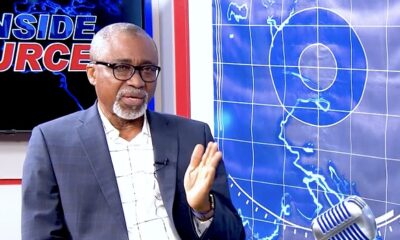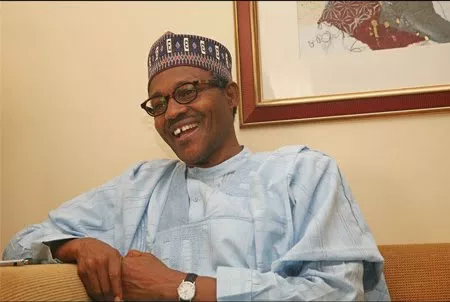Published
3 years agoon

NewsReport June 10, 2021
When I saw Jack Dorsey’s CEO of Twitter “Donate using #Bitcoin to assist #EndSARS” on October 14, 2020, I knew that he’d eventually have difficulty with Nigerian authorities. No government in the world would have given him a backlash to ask a movement to donate that was shaking its power’s underpinnings.
NewsReport gathered that from the perspective of the Nigerian government, the tech-giant founder contributed to the country’s inner crisis by exploiting its enormous international reach to call for money for protestors who chanted not only “EndSARS” but “Buhari must go.” There are a million and one decent ways for a government to respond, but one was not found by the current Nigerian government.
When President Muhammadu Buhari’s tweet on 2 June removed Twitter, which referred to the civil war in southeastern Nigeria in the 1960s and threatened bloodshed, Nigerian authorities replied quickly. On 4 June, the Ministry of Information announced its suspension of the national social media platform.
No mistake: the tweet of Buhari’s removed was – not the trigger – the culmination of Nigeria’s Twitter rage. The platform’s main problem is its position as the most important weapon for the Buhari’s subconscious administration. This was the headwind of Nigeria’s most organic protest of its recent history during the #EndSARS campaign.
Surely without Twitter, that demonstration could not have occurred. It was the venue for the victims of police violence to tell the Black men of the famed anti-robbery squad about their hardships (SARS). I realized the majority of those stories were real after I spent days in a police cell and undercovered myself in prison.
At the beginning of October 2020, news of SARS policemen harassing teenagers from Nigeria and killing a young guy on Twitter in one case provoked uproar throughout the country. This led to the ongoing proliferation of similar experiences reported by victims that inflamed public indignation and drove many into the streets for SARS to be disbanded.
Nigeria’s largest open secret to the protest has been to employ thugs to attack, infiltrate and undermine protestors. State operatives have invested much effort to conceal up the deaths and wounds of the military raid of October 20, which brought down the protest movement.
Eight months after the end of the demonstrations, Twitter is the only venue for irregularly revisiting the events. Sometimes on the 20th day of the month. The flesh of the government of Nigeria, the one long-lasting recollection of the bloodshed at Lekki Toll Gate, survives Twitter.
Speaking shortly after Twitter removed Buhari’s tweet, Minister of Information Lai Mohammed accused the social media platform of “funding #EndSARS protesters”. He also criticized Twitter for its failure to delete incendiary tweets by Nnamdi Kanu, leader of the secessionist Indigenous People of Biafra (IPOB), who is calling for the creation of an independent state (Biafra) in southeast Nigeria.
But Mohammed ignored the fact that Buhari’s tweet was massively reported by the public. Furthermore, Kanu’s secession-inciting tweets are nothing compared with the weight of a president threatening citizens with the treatment dished out during a civil war remembered for the genocide suffered by people in Nigeria’s southeast.
Buhari’s government exists – supposedly – on the mandate of the people; Kanu exists because of the failures of the government. Therefore, the two parties cannot be charged with the same levels of responsibility to the public. That this government cannot see the divisiveness of Buhari’s tweet is quite disturbing.
As far as IPOB is concerned, it is a self-made problem. Twitter merely serves as the amplifier of growing grievances. Many of those who reported Buhari’s offensive tweet has no sympathy for IPOB, but they are worried about the government’s obsession with Kanu and his people at the expense of more glaring and devastating threats to Nigeria’s existence.
In 2017, the Buhari government had the army declare IPOB a “militant terrorist group” in violation of the country’s Terrorism Act, which stipulates that only a judge can make that declaration, before subsequently acting in accordance with the law. Four years later, it still has not mustered the courage to so declare militants from herder communities as terrorist groups, despite their designation in 2015 by the Global Terrorism Index as the fourth deadliest terror group in the world after Boko Haram, ISIS and al-Shabab.
Just a few days ago, militants killed at least 25 and razed houses, shops, and a palace in a town in Nigeria’s southwest, but they are not yet terrorists because of Buhari’s apparent bias for herders, being one himself. Bandits are terrorizing Nigeria’s North; since December, they have abducted close to a thousand people and their unofficial spokesman Sheikh Abubakar Gumi often burnishes their image in the media. Still, to the Nigerian government, killers and kidnappers are no terrorists.
Minister Mohammed’s claim that Twitter has become a platform for “activities that are capable of undermining Nigeria’s corporate existence” is implausible. The biggest threat to Nigeria is the lack of inspirational governance.
Nigerians are hungry. The naira continues to weaken. People’s purchasing power is decreasing. Unemployment is biting. Quality healthcare is lacking. Herdsmen, bandits, and militants are killing people with impunity.
Solve these problems and watch Kanu disappear into obscurity. Nobody will listen to him if they have food on their table. Nobody will join the June 12 demonstrations, which some activist groups are calling for to protest the Twitter ban, if they were healthy and gainfully employed. June 12 is a significant day in Nigeria’s history because it was the date of Nigeria’s freest and fairest election, held in 1993. The result was annulled by the then dictatorial regime of Ibrahim Babangida.
Good governance is the ultimate secret to securing Nigeria’s corporate existence. Twitter, which Buhari used in 2015 to call on Nigerians to condemn the failure of the Jonathan government, cannot suddenly be the problem in 2021. It should not be taken away from the people currently using it to criticize his failings – unless, of course, he is saying we can count the remaining two years of his tenure an accelerated waste.



Bandits demand N40trn, 11 Hilux Vans, I50 Motorcycles for 16 Kidnapped Victims.


Abaribe Accuses Security Forces of Collusion with Bandits

Bandits Strike: Hijacking of Smuggled Goods in Katsina Forest


IPOB Raises Concerns, Claims Leader, Kanu, Needs Immediate, Expert Medical Attention


BUHARI’S TORN BETWEEN MORALITY AND DUTIES -POWELL


Governments should properly prosecute bandits.- UNICEF.



